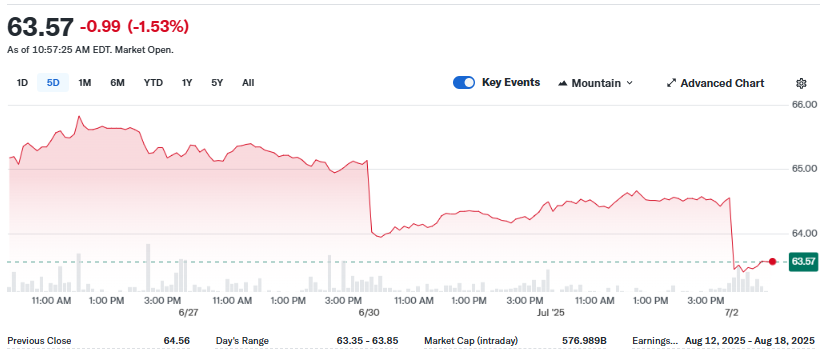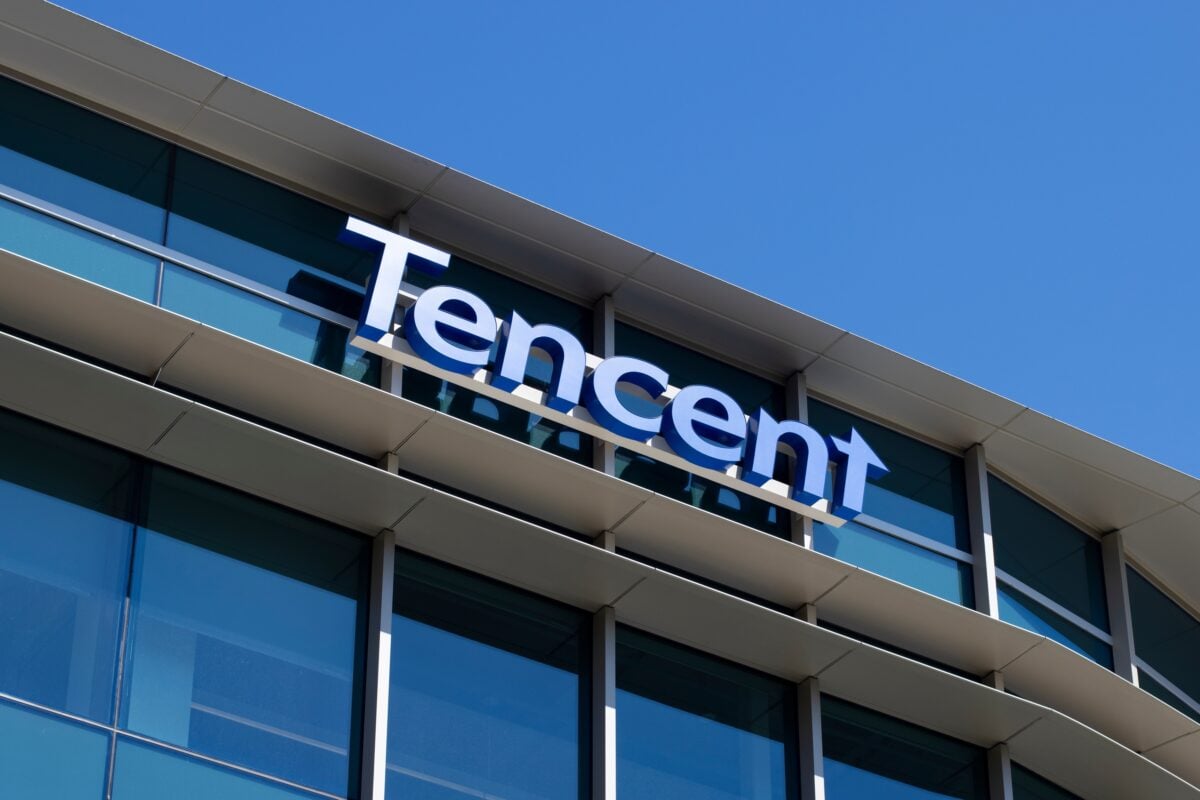TLDRs:
Contents
- China’s Tencent shares fell 2.3% to HK$63.57 as mainland investors sold US$2.73 billion in stock in June.
- The selloff marks a second consecutive month of outflows from major Hong Kong-listed tech firms.
- Investors appear to be rotating away from consumer tech amid rising AI infrastructure bets and geopolitical risk.
- With trade tensions escalating, confidence in Tencent’s near-term upside remains limited despite earlier AI optimism.
Tencent Holdings saw its stock price drop to HK$63.57 by mid-morning trading on Tuesday, slipping 2.3% before recovering after mainland investors dumped approximately HK$21.4 billion (US$2.73 billion) worth of shares in June.
This marks the second consecutive month of net selling by investors through the Stock Connect program, signaling a potential shift in sentiment toward China’s most influential tech firms.
The selloff, which also included substantial disposals in Xiaomi and Alibaba shares, comes at a time when China’s tech sector faces both domestic competition and global market pressures. Tencent, in particular, has shown little price momentum since April, trading in a tight range until the latest drop, as captured in the 5-day chart.

Investor Sentiment Wavers Following AI-Fueled Rally
The sharp outflow from Tencent stock follows a brief but powerful rally earlier this year fueled by excitement over China’s advancements in artificial intelligence.
The launch of DeepSeek’s R1 model had ignited a wave of optimism across the sector, lifting the Hang Seng Tech Index by nearly 30% during the first quarter. But with earnings season approaching and profit-taking underway, investors appear to be reassessing whether tech giants like Tencent are well-positioned to capitalize on the AI shift.
The timing of the selloff suggests that traders may be locking in gains from the AI-driven uptrend while remaining cautious about future earnings reports. Although Tencent has expanded its AI infrastructure investments, concrete monetization plans remain limited in scope compared to global peers.
From Platform Dominance to Portfolio Rotation
China’s ongoing industrial transformation may also be prompting investors to rotate out of traditional consumer tech platforms and into new strategic sectors.
As Beijing pushes to reduce reliance on Western supply chains and boost domestic innovation, capital is increasingly flowing toward segments like high-tech manufacturing, green energy, and AI-enhanced logistics.
Tencent’s current market cap sits around HK$576.99 billion, but its dominance in social media and gaming may no longer be sufficient to command the same investor confidence as before. The recent shift has seen capital flow into firms like Meituan and healthcare companies, which appear more aligned with the Chinese government’s industrial policy and long-term strategic goals.
Geopolitical Friction Clouds Outlook
Another factor weighing on Tencent’s stock is the rising geopolitical tension between the US and China. Recent tariff escalations have injected fresh volatility into markets, with Washington and Beijing levying retaliatory duties of up to 145% and 125% respectively on various goods.
These frictions have raised questions about supply chain stability and export resilience for firms with global exposure.
Despite a 12.4% year-on-year jump in exports this past March, market watchers remain wary. Investors may be recalibrating their portfolios in anticipation of prolonged instability, shifting preference toward companies less exposed to international dynamics. Tencent, with its global gaming and cloud ambitions, remains vulnerable to such macro headwinds.


